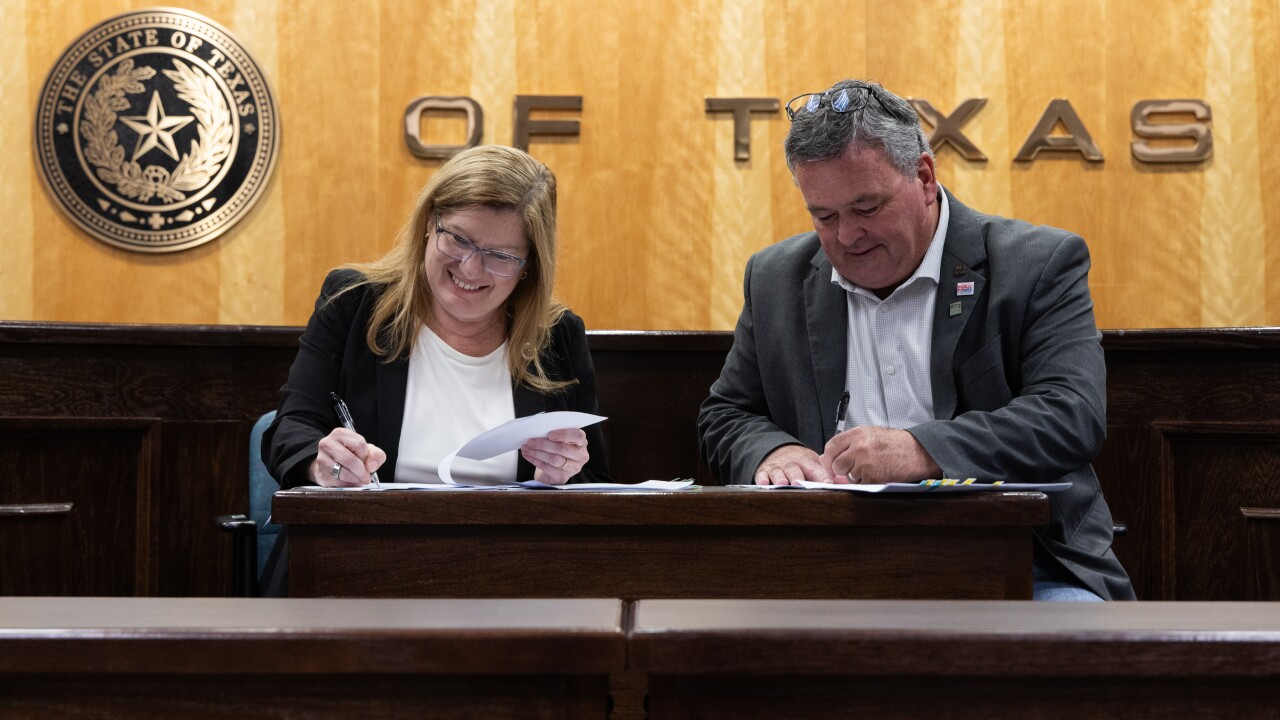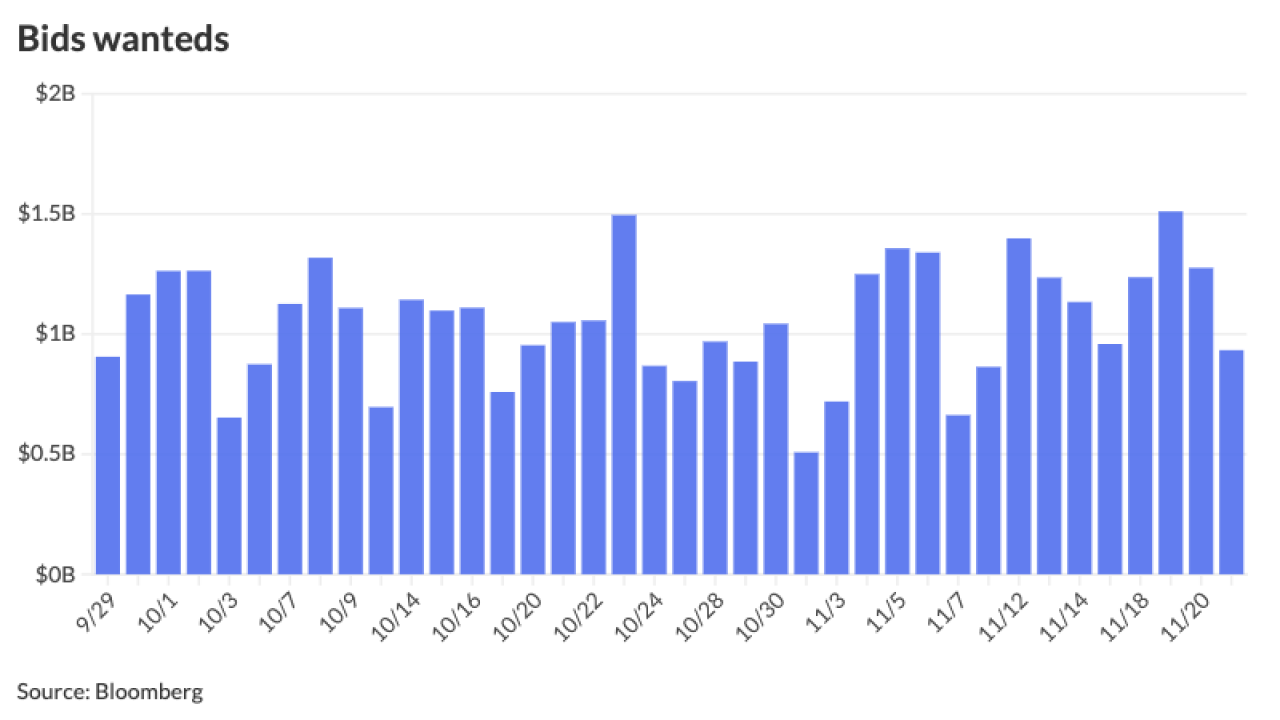CHICAGO — Hoping to capitalize on the lull in supply slated for this week, Wisconsin will take competitive bids Monday on $200 million of transportation revenue bonds in a deal that includes a mix of tax-exempt securities and taxable Build America Bonds.
The issue includes an A series of about $76 million of tax-exempt revenue bonds that mature between 2012 and 2021. The B series is roughly $124 million of bonds maturing between 2022 and 2031. Underwriters can submit tax-exempt or taxable bids on the B series.
“We know there are a lot of concerns about the market but it seems to have stabilized somewhat and the calendar is lighter,” said Wisconsin capital finance director Frank Hoadley, who received preliminary pricing scales from potential bidders Friday. “The rates may be higher than they were two weeks ago but they are still extraordinarily low by historical standards so we can’t see a reason not to go ahead as planned.”
The sale notice for each series leaves the state flexibility to alter size, shift maturities or cancel the bidding. The split between tax-exempt and taxable also could move depending on where the use of the BAB program becomes more economical than tax-exempts. Quarles & Brady LLP is bond counsel.
The market was firmer Friday after digesting more than $7 billion of supply over the course of the week, which prompted a sell-off, driving up yields. Rates last week on 20-year bonds hit their highest level since mid-2009 and 10-year yields stayed at their highest level in seven months. Average yields on 30-year BABs over comparable Treasuries last week were at a seven-month high.
Ahead of the sale, Standard & Poor’s affirmed its AA-plus rating on Wisconsin’s transportation revenue bonds. Fitch Ratings rates the $1.5 billion of outstanding debt under the program AA-plus but had not yet released a new report by press time. Moody’s Investors Service affirmed its Aa2. Fitch and Moody’s raised the credit one notch earlier this year under their recalibration process.
Proceeds will finance various highway projects and improvements to state transportation facilities. Lawmakers have authorized $3 billion of borrowing under the program, $2.8 billion of which has been issued.
The state’s transportation revenue bonds hold a first claim on vehicle registration fees and other vehicle registration-related fees like vehicle title transaction, registration and title counter service, personalized license plate issuance, and renewal fees. The federal government’s interest rate subsidy under the BAB program is not pledged, but the state uses it to repay the bonds.
Pledged revenues are expected to generate $586 million next year, with $507 million coming from registration fees. The revenues provide a debt-service coverage ratio of 3.06 times. Coverage is expected to decline to 2.99 in 2012 and to 2.99 times in 2013 before rising above three times again in 2014. Collections are expected to see only modest increases over the next decade after double-digit increases in 2008 and 2009 due to a $20 increase in the annual fee, according to the state’s offering statement.
The debt issuance comes as state leadership will undergo a dramatic shift in January. Republican Scott Walker will take over the governor’s office from Democrat Jim Doyle, who did not seek re-election.
Walker, Milwaukee County’s chief executive, beat Milwaukee’s Democratic Mayor Tom Barrett earlier this month. Republicans also gained control of the Legislature from Democrats.
On transportation funding, Walker has generated national attention and a rebuff from federal authorities for his plans to halt an $810 million, federally funded high-speed rail line between Milwaukee and Madison. He wants the federal funds to go to road and bridge projects or to reduce the federal deficit.
Transportation Secretary Ray LaHood has warned Walker and Ohio Governor-elect John Kasich they will lose their share of $10.4 billion in high-speed rail grants if they cancel projects in their states. Doyle earlier this month put the project on hold because of Walker’s opposition. Walker believes the state cannot afford the $7.5 million it would cost annually to operate the line once it is in service.





